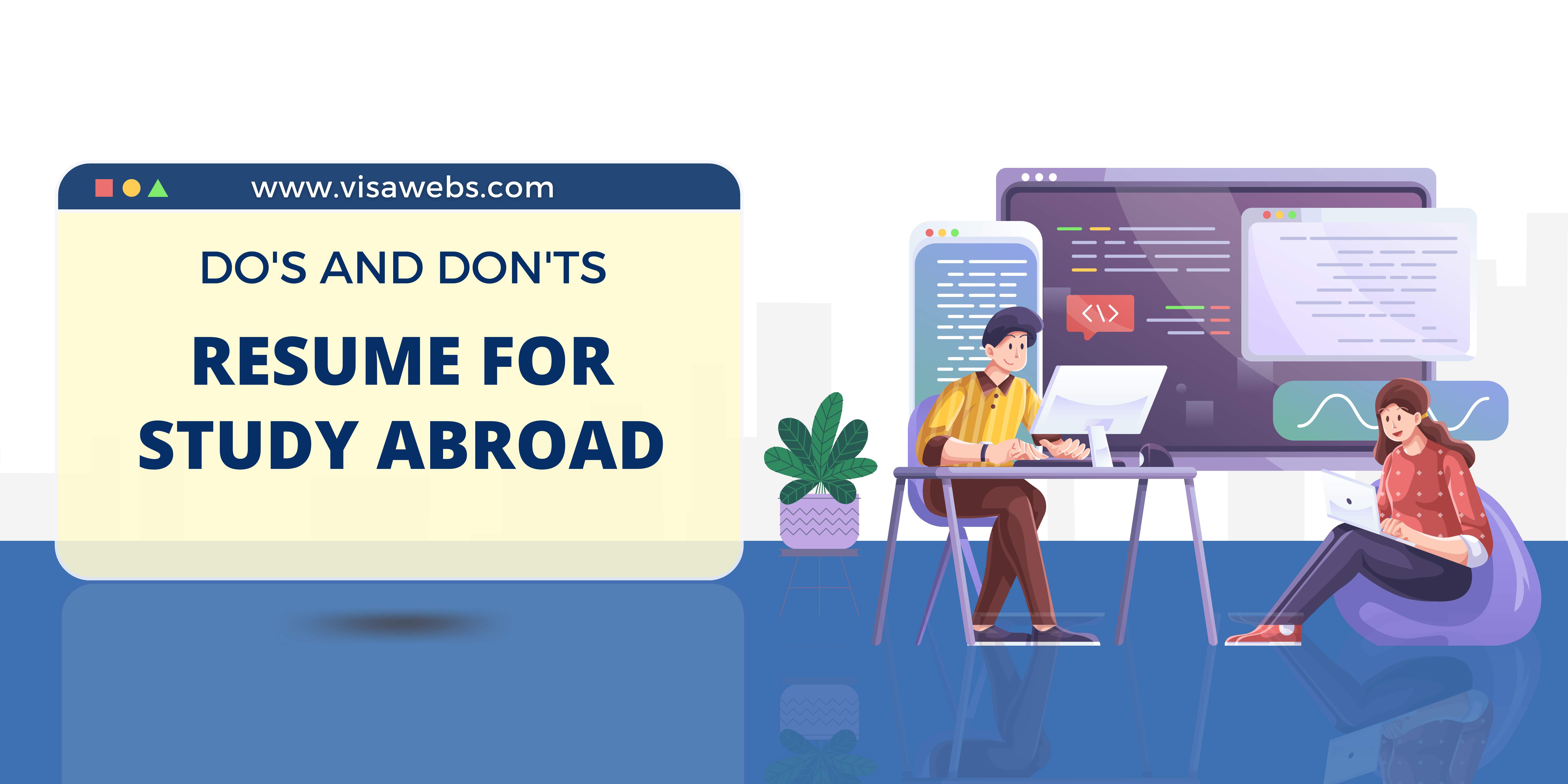
Would you like to learn how to write your first resume as an international student? Well, this article is perfect for you as you are going to learn the tips to write your resume by following the correct format. Study abroad application is one such problem that every student faces as students are mostly confused about what to include and what to exclude. In this blog you will learn how to write a CV to study abroad.
In order to write a strong resume, it is important to emphasize your education along with your experience. A resume in the United States provides employers with a summary of a person’s abilities and accomplishments.
What do you mean by a proper resume and how it is written?
First off, let’s see what a resume includes and a brief introduction of what each section should provide.
| Personal information | This includes the full name, contact number or email, which allows the recruiters to contact you in the very first place. |
| Heading statement | Starting with an attractive short and relevant summary not more than 4-5 sentences can be included in the heading statement. It should focus on your skills and future career goals. |
| Skills | Showcase your best skills in 3-5 points that will show your potential to grow in different fields. You must be clear of your soft skills and hard skills and must balance them. |
| Education | Include all the names of the schools and colleges, or other degrees in your resume. Also include relevant achievements and academic awards in the list. |
| Experience | Include your employment history, dates, the title of your position, and a shortlist of your primary job responsibilities. In addition to formal internships and jobs, mention relevant experiences such as research or independent projects. |
Note: unless the job posting specifically instructs you to include them on your resume, do not list references. Instead, you can choose to add “References available upon request”, and be prepared to show them during your interview.
1. Keep It Simple and Informative
You should keep everything organized and on one page so it is easy for employers to scan. If you are a new graduate or have limited experience, you can easily create a concise resume by describing qualifications and prioritizing strengths.
A potential employer needs to be unbiased and to understand why you would be a great fit for the position. So please refrain from revealing excessive details such as the number of the building, street name, landmark, your age, race, religion, test scores, or any other detail that does not reflect your actual abilities.
Quantitative information may catch the attention of recruiters if you include numbers. For example, “assessed 20-40 articles”, “supervised 5-10 students”, or “increased sales by 20%”. It is much more powerful to demonstrate your abilities than to simply state the tasks you have completed.
2. Beware of the Formatting and Structure
Earlier, we discussed how resumes should look clean and organized. Keeping it simple means focusing on structure and formatting.
You should put your name and contact information at the top of the page. Using different standardized formats likeTimes New Roman, Arial,etc. Keep a medium size of 11-12 and not more than that otherwise it will look vague. Avoid features like Italics, shading, bolding, and underlining sentences in your resume.
3. List with Bullet Points
This point is always a brownie point as using this method can make your achievements easy to read. Avoid using big paras or even paras and put it in short and crisp bullet points.
Bullet points are used to highlight key accomplishments or experiences. Try to use 2-3 effective bullet points for every header (education, experience..) with information and/or achievements. Readable, standard bullet points like circles or hyphens are most commonly used, still, whichever your preferred style is, make sure to stay consistent throughout the whole resume.
The aforementioned tip to add numbers to your resume is most effective when used in bullets. It helps impress recruiters and helps them picture the impact you’ve made. You should list your bullet points from most important and relevant to the job, to less applicable.
4. Showcase Educational Qualifications & Experience
To get a job, most undergraduates and fresh graduates rely on their academic background; therefore, they need to highlight their achievements in their resume. Your degrees, diplomas, and certifications should be listed in reverse chronological order throughout your resume. You can also list qualifications in order of relevance to the job, so the most relevant qualification appears at the top.
Visawebs is an education startup founded in 2018, which provides a one-stop solution for students planning to study abroad. We promote sensible education choices which help students be placed at the best-fit career abroad for their profile and in settling in the destination country in the best way. Having registered over 5000 students, tied up with 50+ international universities (USA, Canada, UK, Ireland and more), the company aims to provide services to the students right from IELTS to finding the right mix(country, course and institution) to VISA applications to a soft landing. It also includes help with education loans, forex, airport transfers, part time and accommodation. Visawebs is a community-driven team for international education and learning.
For more information, contact: info@visawebs.com


